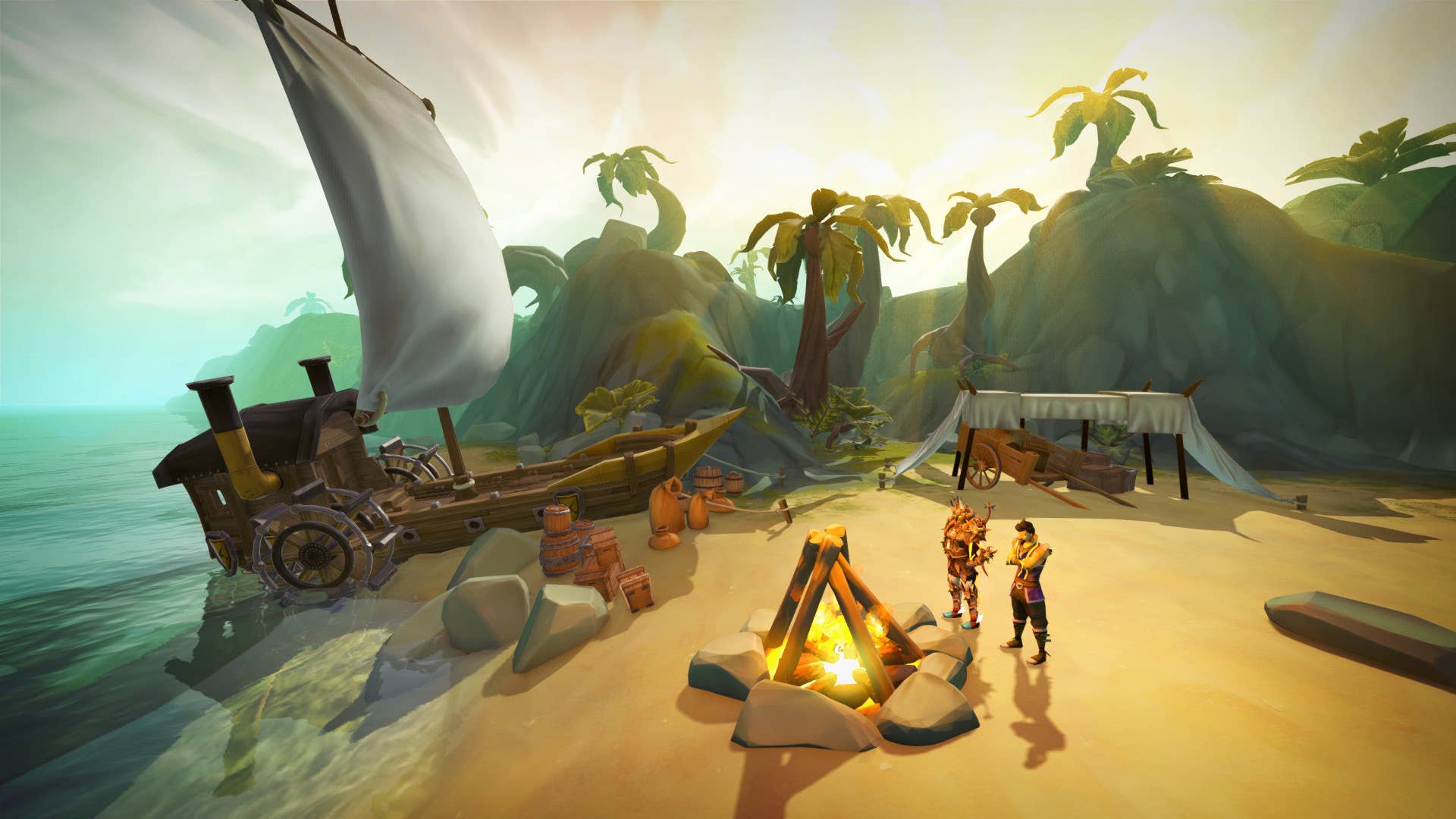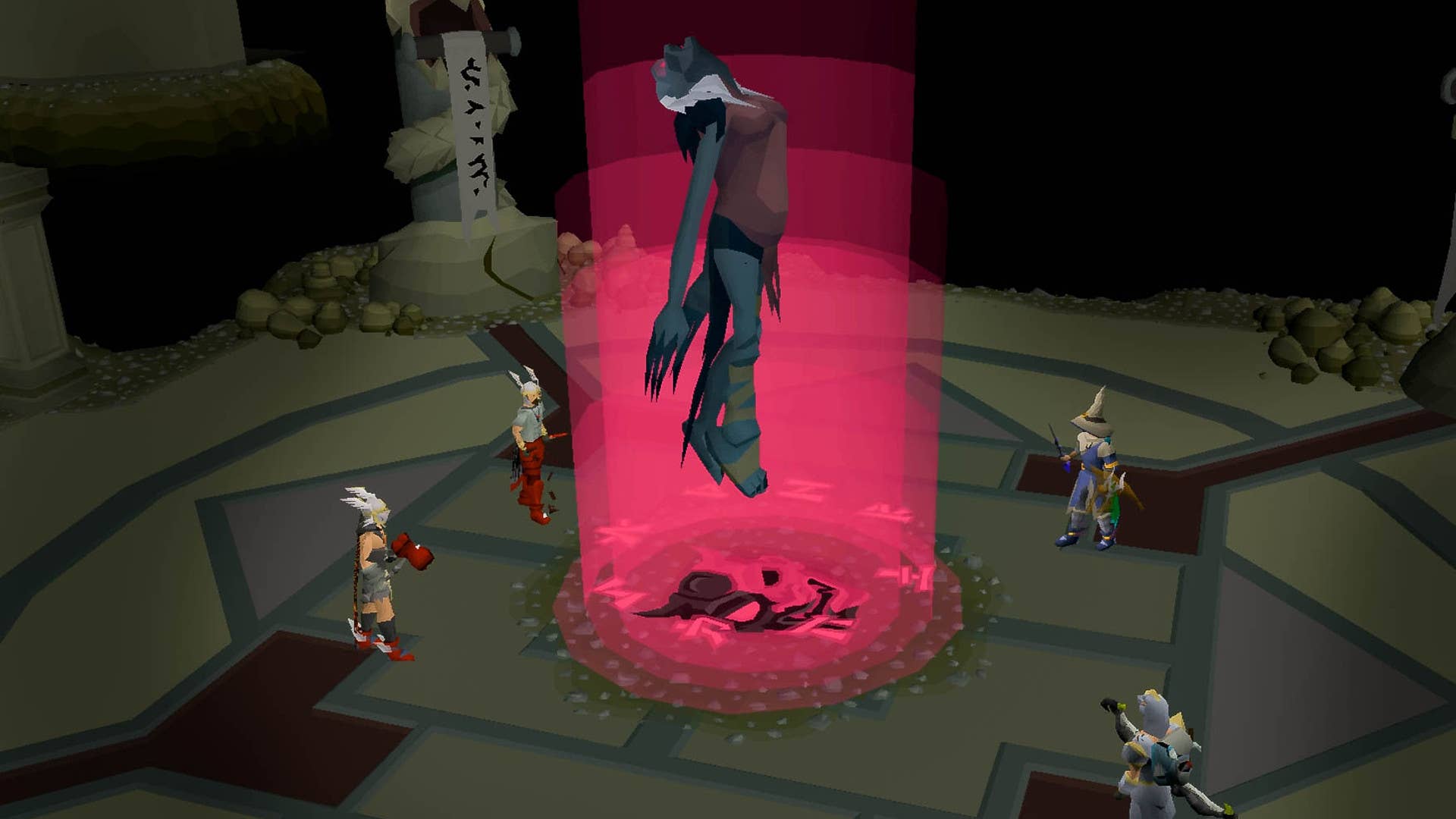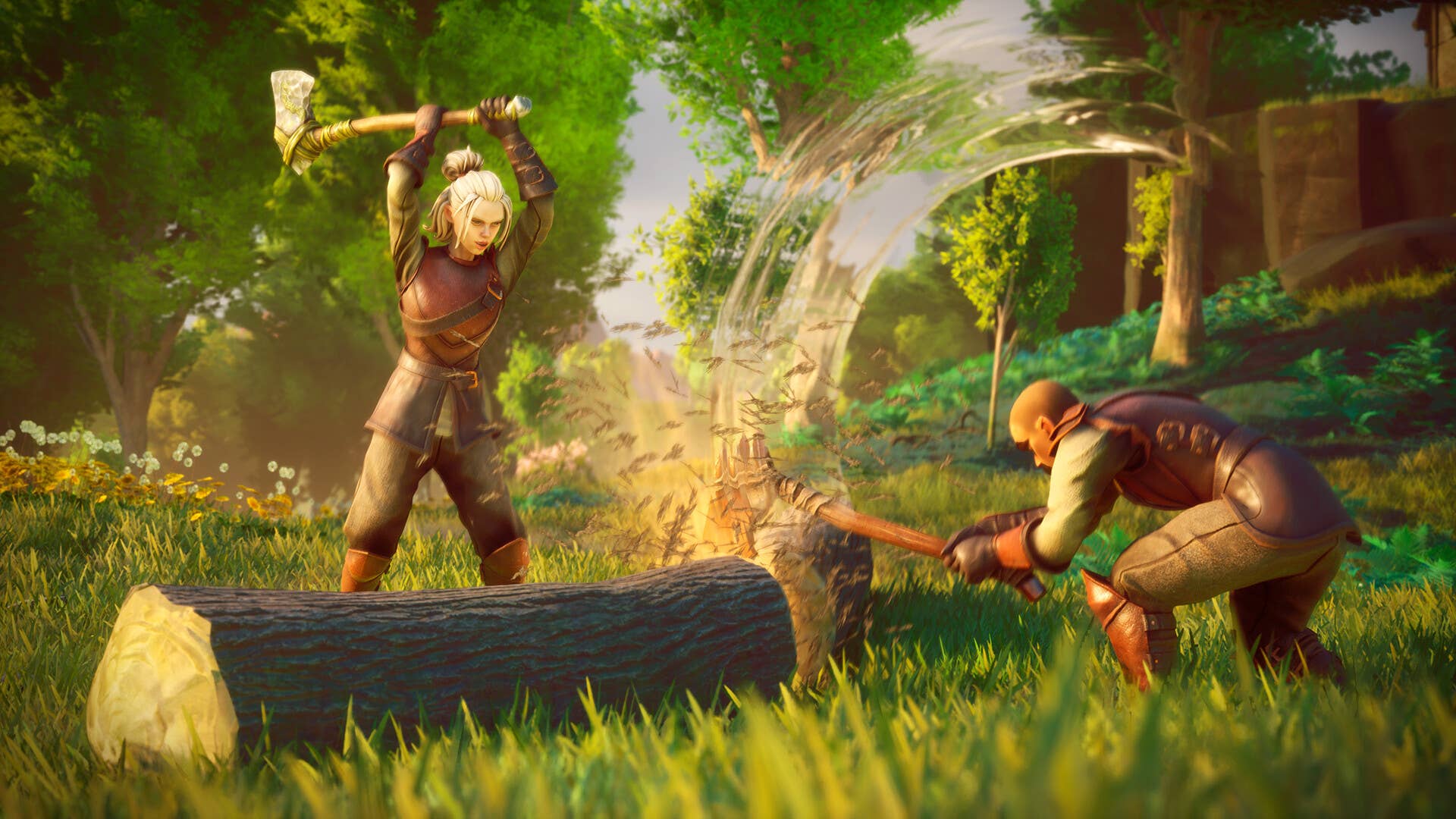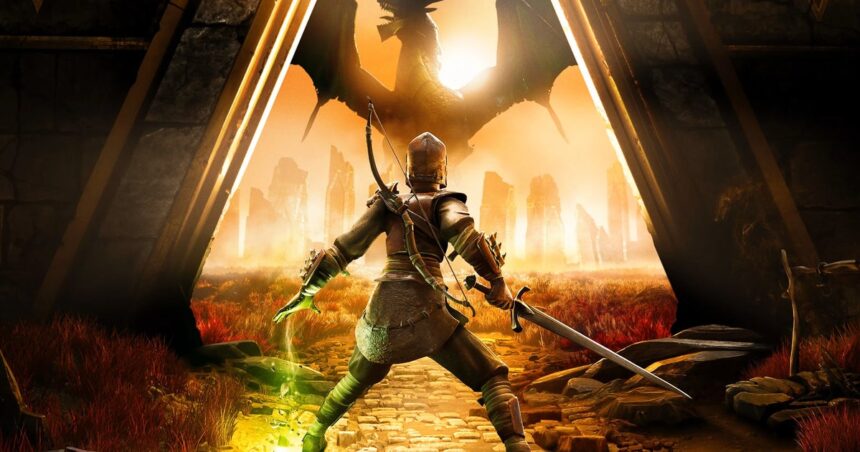In the past few years, RuneScape giant Jagex has undergone a slew of changes.
At the start of 2024, it was acquired from private equity giant The Carlyle Group by CVC Capital Partners and Haveli Investments for somewhere in the region of £900 million ($1.2 billion), according to reports at the time. Then earlier this year, long-time CEO Phil Mansell stepped down after eight years at the helm, to be replaced by Jon Bellamy.
All in, that’s a fair amount of change. But as far as its new chief exec is concerned, Jagex needs to focus on one thing, and one thing only – RuneScape.
The long-running MMO franchise appears to be in rude health, too. Both RuneScape (also known as RuneScape 3) and its retro-themed counterpart Old School RuneScape recently reached a combined peak concurrent player figure of 270,000 users. Old School RuneScape alone recently hit a peak concurrent figure of 250,000 gamers.
“For a long time, Jagex has been ‘the RuneScape company’. We’re the best in the world at doing exactly that,” Bellamy says.
“At least under my tenure, the plan is to not diverge from that. Great companies are built by doing what they do well even better, rather than trying to do things they don’t do quite so well.
“The thing we do really well is maintaining the RuneScape games and governing their communities. That’s exactly what we plan to do for the next five years. If we’re known as the RuneScape company, I think that’s something to be proud of, and it won’t be changing.”
Bellamy’s appointment came with one interesting wrinkle; he was hired by CVC Capital in July 2023 as an advisor. In the past, at least from the outside, the nature of Jagex’s ownership had been something that was very much in the background: The Carlyle Group, after all, didn’t appoint one of its advisors to the CEO position.
While it’s not uncommon for private equity firms to hire advisors to understand a particular business, one has to wonder whether Bellamy’s appointment indicates that Jagex’s current owners want a tighter leash on the RuneScape giant.
“I played these games myself and worked here for about five years previously,” Bellamy says. “I’ve stayed really close to the company since. The CVC team met me a year before the transaction happened. They thought Jagex looked like a great business, they were really interested, but they wanted some help in understanding it more personally.

“CVC and Haveli understand this business better than almost any other potential acquirer. You could say that means ownership is closer to management and the business, but actually, I think that’s a really good thing.
“In the acquisition space, problems arise when the owners don’t understand what they have bought. You get a misalignment of incentives. The great news is they know exactly what they’ve bought. They’re interested in Jagex for all the right reasons, and they understand the value and the longevity of the RuneScape IP.”
Into the wilds
Another quite seismic change in April was the release of a new Jagex game called RuneScape: Dragonwilds.
Pitched as RuneScape meets Valheim, the title has done very well for itself in Steam Early Access. Having shifted over 600,000 copies in its first week on sale, the game has now surpassed 900,000 units sold.
In fact, Dragonwilds has done so well that Jagex is doubling its investment in the survival title. The game is also scheduled to arrive on the company’s own platform at some point in the future, as well as launch on console in late 2026.
“It’s definitely surpassed all of our initial expectations; even our high targets have been more than exceeded,” Bellamy says.
“We’re really happy with it and have just approved additional investment as it has done so well. What I want to do is grow beyond the original design scope into something much bigger, much more persistent than perhaps the original brief, and therefore, we’re hiring quite aggressively in that team as well.”

Although Jagex has been focused on RuneScape for most of the past 24 years, the firm has also worked on a number of other projects, based both in the world of Gielinor and outside it. A few made it into the wild (such as 2016’s short-lived Hearthstone competitor Chronicle), while others were announced but never released (such as Stellar Dawn/MechScape).
Putting it frankly, the company has spent a lot of time working on games that never saw the light of day. Today, Bellamy wants Jagex to be more focused.
“It’s the Old School RuneScape team, the RuneScape 3 team and Dragonwilds,” he says. “There are no teams beyond that. New ideas are seeded via initiatives like game jams and come fairly organically through existing development work.
“One of the things that I was really keen to do when joining was make sure that focus was many multiples of where it could have been, if not really doubled down on, and that the things we were doing we were doing with intention.
“But it is important that we leave enough oxygen in the room for new ideas to come, rather than just constantly grinding on what already exists. But the way in which that happens needs to be a bit disciplined. The way that we work today is really split into three products rather than three products plus a few different initiatives. That’s where we’re comfortable.”
Money issues
Another area where Bellamy wants change in Jagex’s stable is RuneScape 3’s monetisation. This has long been a contentious topic with the community; by the company’s own admission, it has lost players because of the way microtransactions have been implemented.
Jagex recently suspended the Treasure Hunter minigame (which saw players exchanging keys they had received or purchased for a random prize) and is instead running a series of experiments to inform how it is going to handle monetisation moving forward.
Given how touchy a topic monetisation in RuneScape 3 is, it’s highly unlikely Jagex will settle on a solution that will please everybody. So what does a decent consensus or agreement look like between the company and its community?
“Agreement’s a really good word; this has to be done with the community,” Bellamy explains.
“We’ve fallen foul of not being close to the community for RuneScape 3 in the past. This time around, it’s really important that whatever we do decide is done in conjunction with the community, because that’s worked so well for Old School RuneScape.

“Whatever we do decide has to be reflective of not just what people say and what the common consensus is, but also is reflective of the sort of data that we captured in running these experiments. Being able to observe how people’s play patterns or actions change when you actually remove or add bits of content adds a whole new lens.
Bellamy continues: “To your question about what it could look like, the only thing I would say is that microtransactions are only one part of the puzzle. What matters most for a Jagex game and a RuneScape game is integrity.
“We’ll have clarity on exactly what the proposal is for monetisation treatment by the end of the year”
Jon Bellamy, Jagex
“When I look at the way Old School RuneScape has succeeded in the way that it has for so long, the way the game is developed, the visual style, and the cohesion of that game and protecting that cohesion over time, the balance and utility of all of the in-game content staying relevant over time, that’s all very high integrity in the way that the game is run.
“For RuneScape, adding back some of the integrity that maybe we lost over the last decade or so is more than monetisation; it’s visual integrity, it’s gameplay integrity, too. These experiments really touch on the monetisation aspect, but there’s more than a year’s worth of work yet to be announced and yet to be done on strengthening integrity across visual gameplay and monetisation.
“The good news is, we’ll have clarity on exactly what the proposal is for monetisation treatment by the end of the year, and the community can expect to hear a lot more about that in the next couple of months.”
Backlash
In June, Jagex was accused of rolling back its support for Pride in RuneScape in an article over on Pink News. There was still in-game content to commemorate the event, but assets were simply reused from last year’s Pride.
At the time, Bellamy drew ire from parts of both Jagex’s own community and the industry at large over comments he made in an internal meeting with staff to address the situation – namely that pulling Pride content was to avoid a “backlash”, adding that said content was “controversial in a way it didn’t used to be”.
At the time, one anonymous staffer accused the company of caving to American-style conservatism because of the shift in the political climate. Pressed on this, Bellamy stands by his original comments, emphasising that it was his decision and no one else’s.
“Ultimately, my job is governance and protection as much as anything else, and so sometimes those kinds of harsh decisions have to be made to protect the imminent future of the game,” he says. “If there are tough decisions to be made next year, we’ll make them. If the world has changed a bit and the environment is different, we will react accordingly.”

One argument raised by the community was that while Bellamy’s decision was made due to the global political situation, this is precisely the reason why events like these are perhaps more important than ever.
“The most important thing is the continuity and maintenance of our games, as well as the preservation of our players and serving our players great RuneScape experiences as we have for years. That’s the top priority, and that will always be the top priority,” he replies.
“I totally sympathise with what’s being said. At the top of my totem pole will always be the continuity and operation of our games as apolitically as possible, because ultimately our games offer escapism to many hundreds of thousands of players every day. If that escapism opportunity is compromised, there’s a very real risk to the business.
“The most important thing is the continuity and maintenance of our games”
Jon Bellamy, Jagex
“I will continue to make decisions that keep the continuity at the top of the priority list, though I do, of course, understand exactly why people would say what you’ve just said.”
Given the rude health of the RuneScape franchise – and development being more focused than ever, according to Bellamy, the new Jagex chief is optimistic about the future of the studio.
“In four or five years, I’d love to have three stablemate RuneScape products that are growing month after month, that are sustainable and run like live-services potentially,” he says. “I would also love to have a slightly broader interpretation of the RuneScape IP – and that I’ll leave to your imagination.”
Disclaimer: Alex Forbes-Calvin is a freelance journalist who has worked with Jagex in the past on projects including the RuneScape: The First 20 Years book.





